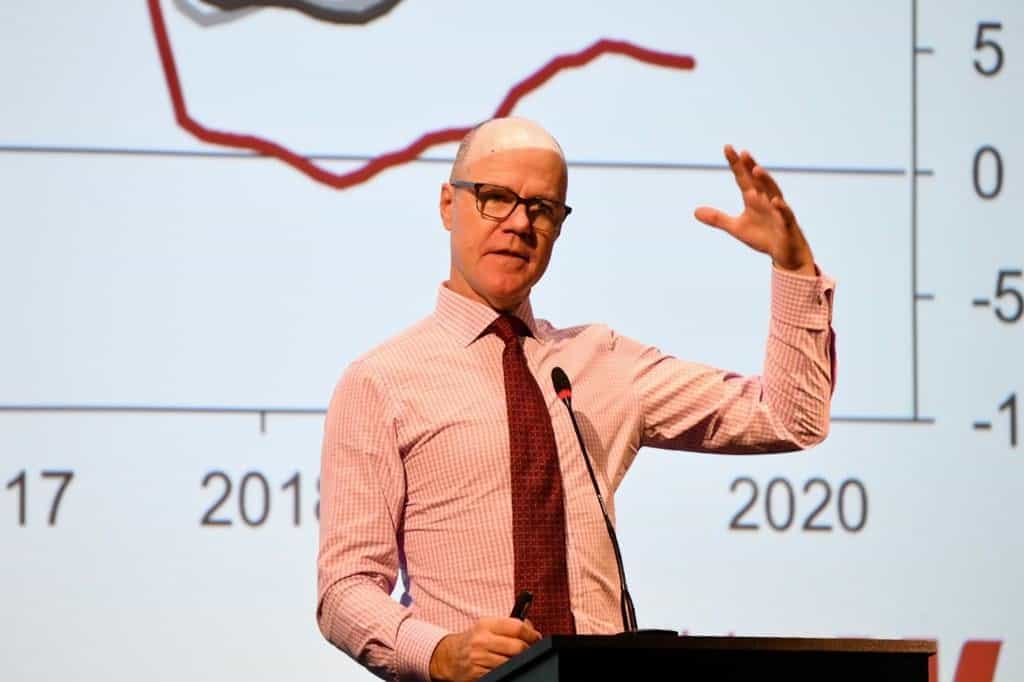Westpac economist Justin Smirk says there are six problems affecting the national economy and businesses in Papua New Guinea which are: shortage of expertise and skills, foreign exchange, security, unreliable utilities, lack of government capacity and regulatory uncertainty.
“Addressing these issues will have a significant positive impact on PNG’s economy,” Smirk told a business meeting in Lae.
Despite the setbacks that business houses in the country face, he believes that they will get through all.
“In light of the Puma issue, people outside looking in will say, ‘What’s going on in PNG?’ It’s not normal that it happens a lot to the economy, systems, businesses and the culture. But they will still get through,” he said.
Businesses in PNG always find a way to overcome problems, such as sourcing fuel supply from overseas during the recent crisis.
“That doesn’t mean that it’s good and you try to do a lot of things to try to fix things, because if you did, things would be so much better and you wouldn’t have to do so much work later on,” Smirk said.
Smirk is the newly-appointed director for Westpac Economics for the region and is looking forward to setting up an economics team for Westpac PNG.
Meanwhile, Papua New Guinea’s economic growth was slower than anticipated in 2023 at 2.7 percent, however, it is expected to accelerate to 5.3 percent this year.
This forecast was made by Credit Corporation chief executive officer Danny Robinson during the announcement of the Group 2023 Financial Year.
“The accelerated growth would come as a result of improving output in the nation’s resources sector and a significant pipeline of government capital projects,” he said.
“We will continue to focus on strengthening operational performance through prudent and disciplined management of credit risks, increasing share of wallet with existing customers via expanded digital product offerings; up-skilling our staff and transitioning to being a niche commercial bank,” he said.
The Group’s performance for financial year 2023 was strong as it hoped to benefit from the growth for 2024 on the back of the reopening of Porgera gold mine and construction of other major resource projects.
For the rest of the other Pacific island countries, the Group highlighted a steady growth in key players such as Fiji, Solomon Islands and Vanuatu.
According to Credit Corp, financial outlook for the Pacific sees Fiji’s economic growth forecast at 3.92 percent with a strong recovery in tourism offset by weak production in a number of sectors of the economy.
The Solomon Islands economy continues its recovery from the pandemic. Gross domestic product (GDP) growth of 2.43 percent is forecast for 2024, supported by the flow-on benefits from the 2023 Pacific Games in Honiara and the national elections.
Vanuatu’s economy is expected to rebound from a challenging position in 2023 resulting from the damage caused by tropical cyclones. However, the International Monetary Fund has forecast real GDP growth of 2.64 percent, supported by an anticipated increase in visitor arrivals.
